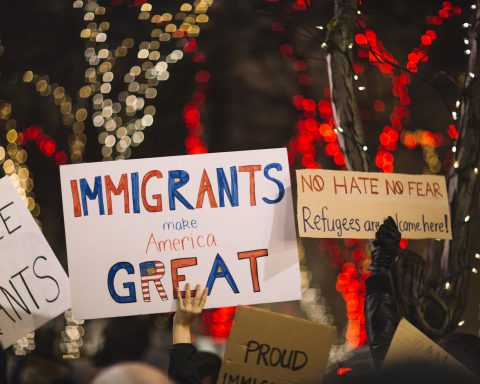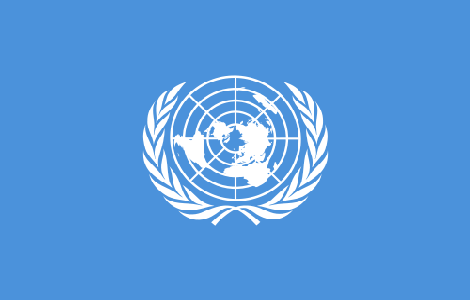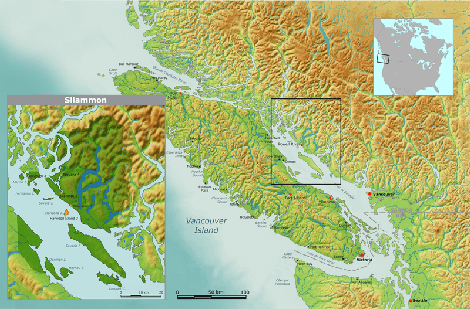The residents’ claims for justice
The residents of Kangjeong village demand that four conditions be met in order to justify the construction of the naval base: 1) democratic and legal procedure, 2) the absolute necessity in terms of national security, 3) right compensation, and 4) the propriety of selecting place. However, they argue that the project does not satisfy these conditions and therefore, there is no justification for the on-going construction., In their eyes, the naval base is only further evidence of the oppressive arrogance of governmental authority.
The most serious problem is the absence of procedural justice over a long period of time.[1] As a matter of fact, the selection of Kangjeong village over other locations took no more than 15 days. The vote by the residents occurred rapidly and carelessly, without a presentation or a public hearing to provide information sufficient for understanding the positive and negative effects of the construction.
___________________________________________
It seems that governmental authorities are willing, for the sake of national interests and security, to disregard the rights of local peoples and to execute coercive powers on those residents.
___________________________________________
In a democratic society, each person should have the same equal right to the basic liberty as others.[2] These basic liberties include freedom of thought, right to vote, and freedom of association. However, such rights have been totally disregarded. It seems that governmental authorities are willing, for the sake of national interests and security, to disregard the rights of local peoples and to execute coercive powers on those residents—the residents who simply demand reassessment of the naval base project that was initiated by rash procedural justice as well as by insufficient knowledge. The government is demonstrating no respect for the integrity and rights of the residents’ personhood.[3] Nor is this new. Gangjeong village has been here before. On April 3, 1948, 14,000 villagers were killed in “the 4.3 Incident,” a series of events that began on March 1, 1947, and continued through September 1954, consisting largely of police and military crackdowns on Jeju islanders, who were protesting elections that set up a government only in the southern half of the Korean Peninsula. The protesters were labeled communist sympathizers. Now, National Police Chief Cho Hyun-o calls for strict law enforcement in the same tone and manner used to threaten the Jeju people in March 1947.
Justice or Peace?
Given the division of Korea into North and South, it is reasonable to expect some inequalities for the sake of national security. As Martin Luther said, “Peace is more important than all justice; and peace was not made for the sake of justice, but justice for the sake of peace.” In that sense, South Korea may need peace more than it does justice. However, the naval base may also be a threat to peace as it could trigger, or exacerbate, an arms race in Asia. Even though the Korean government has denied participation in a Missile Defense (MD) system, Jeju naval base has the potential to be used as means of U.S. MD strategy for the purpose of checking China, thereby increasing military tensions with Japan and China. Moreover, the nation has since dropped the concept of the so-called Great Ocean Navy and instead focused on coastal defense from North Korean provocation, for which a port in Jeju would not be of much help.
Even if the base does not threaten peace, inequality (in this case, the subordination of the rights of the villagers to the interests of the nation), legitimized by national security, requires, if it is to be justified, that the benefits be distributed fairly and impartially. If there is any partiality, the least advantaged members of society (like the villagers) should be the ones to receive the greatest benefit.[4] For that to happen, there would have to be fair financial compensation for the use of the land. There is no such fair compensation.
___________________________________________
The compulsory sacrifice of the few for the many is incompatible with justice.
___________________________________________
This lack of fair compensation is not due to lack of resources or precedent. When the American military bases in Korea relocated from Yongsan in Seoul to southern Pyeongtaek, the Korean government provided $920 million. In addition, it approved the investment of $1.8 billion to the local development plan of Pyeongtaek. In contrast, the compensation scale for the loss caused by the construction of the naval base in Jeju is a twentieth of the scale applied to Pyeontaek.
The absence of specific distribution plan for each person is also problematic. For example, a village man making a living only from fishing should get more compensation than others who have another means of support such as field or agriculture, etc. Compensation is calculated and distributed as “would-be benefit,” i.e. the economic benefits from the construction of the port. Opponents have argued that the construction does not necessarily translate to future economic growth, citing the case of Japan’s Okinawa, where American troops are being stationed and the local economy is stagnant.
Finally, there is no environmental value assessment.[5] Opponents claim it will ruin the village’s ecosystem. A coalition of local residents and progressive civic groups are still opposed to the plan, which they argue would cause environmental hazards and harm the image of the “peace island.” The island, designated by the central government as “Peace Island” in 2005, is home not only to its 530,000 residents but also to nine UNESCO-designated Global Geo Parks, three World Natural Heritage sites, and a Biosphere Reserve.
All things considered, the people of Gangjeong Village are emerging, again, as the victims of injustice. Given political and economic relations among Korea, Japan, China, and the U.S., the issues of peace, national interest, and national security are often given absolute priority over other considerations in Korea. However, the compulsory sacrifice of the few for the many is incompatible with justice. To avoid repeating history, the Jeju naval base project should be carefully and thoroughly reconsidered in terms of mutual benefits of justice.






Unbound Social